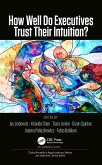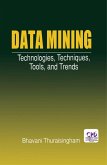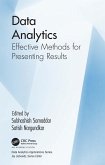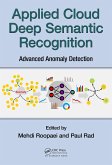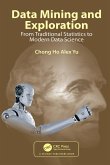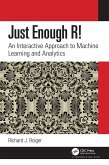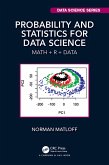In this age of Big Data and analytics, knowledge gained through experiential learning and intuition may be taking a back seat to analytics. However, the use of intuition should not be underestimated and should play an important role in the decision process.
How Well Do Executives Trust Their Intuition covers the Fulbright research study conducted by this international team of editors. The main question of their investigation is: How well do executives trust their intuition? In other words, do they typically prefer intuition over analysis and analytics. And equally importantly, what types of intuition may be most favorable looking at different variables? The research utilizes survey and biometrics approaches with C-level executives from Canada, U.S., Poland, and Italy.
In addition, the book contains chapters from leading executives in industry, academia, and government. Their insights provide examples of how their intuition enabled key decisions that they made.
This book covers such topics as:
The book explores how executives can use intuition to guide decision making. It also explains how to trust intuition-based decisions. How Well Do Executives Trust Their Intuition is a timely and prescient reminder in this age of data-driven analytics that human insight, instinct, and intuition should also play key roles.
How Well Do Executives Trust Their Intuition covers the Fulbright research study conducted by this international team of editors. The main question of their investigation is: How well do executives trust their intuition? In other words, do they typically prefer intuition over analysis and analytics. And equally importantly, what types of intuition may be most favorable looking at different variables? The research utilizes survey and biometrics approaches with C-level executives from Canada, U.S., Poland, and Italy.
In addition, the book contains chapters from leading executives in industry, academia, and government. Their insights provide examples of how their intuition enabled key decisions that they made.
This book covers such topics as:
- Using intuition
- How gender, experience, role, industry, and country affect intuition
- Trust and intuition in management
- Trusting intuition
- It's a matter of heart
- Leadership intuition and the future of work
- Creating an intuitive awareness for executives
- Improvisation and instinct.
The book explores how executives can use intuition to guide decision making. It also explains how to trust intuition-based decisions. How Well Do Executives Trust Their Intuition is a timely and prescient reminder in this age of data-driven analytics that human insight, instinct, and intuition should also play key roles.
Dieser Download kann aus rechtlichen Gründen nur mit Rechnungsadresse in A, B, BG, CY, CZ, D, DK, EW, E, FIN, F, GR, HR, H, IRL, I, LT, L, LR, M, NL, PL, P, R, S, SLO, SK ausgeliefert werden.



